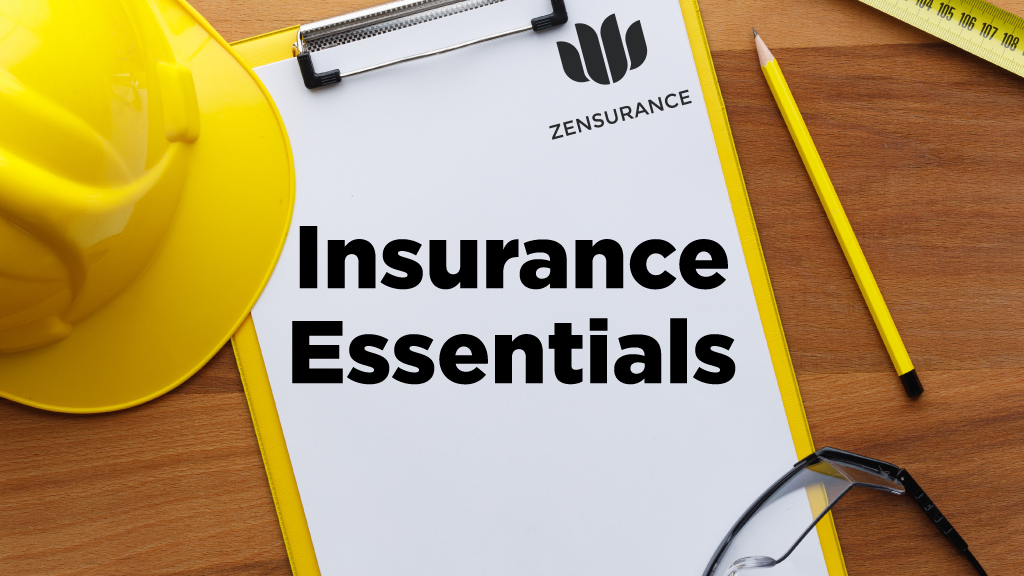There are always potential liability risks doing excavation work at every jobsite, including utility damage, soil instability, property damage and pollution or environmental impacts. Here’s how you can protect yourself.
Before my career as a licensed insurance broker, I worked in the construction industry and was frequently involved in excavation-related projects. I was pinned in a hole during one project after the walls unexpectedly collapsed because we failed to use the proper safety precautions, and I was buried up to my waist in the trench.
Thankfully, I escaped without injury, but it highlights the necessity of following strict safety protocols and ensuring your insurance policy is customized to suit the risks your jobs entail, including having the right amount of coverage to pay for incidents and damages if one should happen.
Digging Deep: What insurance do excavators need?
Excavation projects involve using heavy construction equipment for a variety of purposes. For example, digging trenches and foundations, site preparation before building, moving and reshaping soil to fit a desired terrain or contour, handling heavy material and assisting with underground utility installations.
But there are always potential liability risks doing that work, including utility damage, soil instability, property damage and pollution or environmental impacts. A comprehensive excavation contractor insurance policy that’s tailored to your specifications may include the following:
- General liability insurance: Covers third-party bodily injury or property damage claims if a passerby is injured traversing the jobsite or because of unintentional damage to the property.
- Commercial property insurance: Covers your business’s property and contents and your client’s property during a project if damaged by fire, water, a natural disaster, theft or vandalism.
- Tools and equipment insurance: Covers the cost to replace or repair your transportable tools and equipment if lost, stolen or vandalized.
- Pollution liability insurance: Covers the cost of environmental liability claims that may arise because of your work, including clean-up costs, damage to an adjacent property or third-party bodily injuries such as an illness someone suffers during or after the project has been completed.
- Equipment breakdown insurance: Covers the heavy equipment you use, whether you own or rent it, if they cease to operate because of a mechanical or electrical malfunction.
- Commercial auto insurance: Covers your business vehicles and trailers as well as the mobile equipment you transport to a jobsite, such as backhoes, bulldozers and excavators if you’re involved in an auto accident.
Recalling my experience getting pinned in a trench when the walls suddenly caved in, it’s worthwhile to insure the trench boxes your team uses on jobsites (a legal requirement for trenches of a certain depth and size).
Hopefully, you never go through that experience, but if you do, and a team member is hurt, or a collapse leads to property damage at the site, you’ll likely need to file a claim to deal with those costs.
Six ways for excavator contractors to reduce their liability risks
While it’s wise (and necessary) to have a customized excavation contractor liability insurance policy, taking proactive steps to minimize the possibility of damage or loss and avoid filing an insurance claim can help keep your premium low.
Here are six things you can do to reduce those risks:
- Implement robust safety protocols and provide training to operators and workers to minimize the risk of incidents and injuries.
- Conduct site assessments and locate underground utilities before excavation to prevent damage and ensure compliance with relevant regulations, permits and safety standards.
- Maintain equipment in good working condition and follow recommended maintenance schedules to reduce the risk of malfunctions or equipment failure.
- Adhere to environmental protection guidelines and waste management practices to minimize potential environmental damage.
- Ensure the jobsite is secured after each work day to prevent the possibility of theft, vandalism or someone wandering onto the site and injuring themselves.
- Review client contracts carefully, seek legal advice if necessary, and ensure clear communication with clients to avoid misunderstandings or contractual disputes.
Protect your finances and reputation with a customized insurance policy
Excavation and trenching operations are among the most dangerous in the construction industry.
Sadly, trenching incidents and tragedies are not uncommon, like one that occurred in Ontario in August 2022.
Don’t take chances. Speak to a licensed business insurance broker if you have questions about the type of policy your excavation business needs.
Jon Hogg is a licensed broker and senior team lead, renewals at Zensurance, Canada’s leading source for small business insurance. Get a free quote for your insurance needs by visiting Zensurance.com/DCN.



Recent Comments